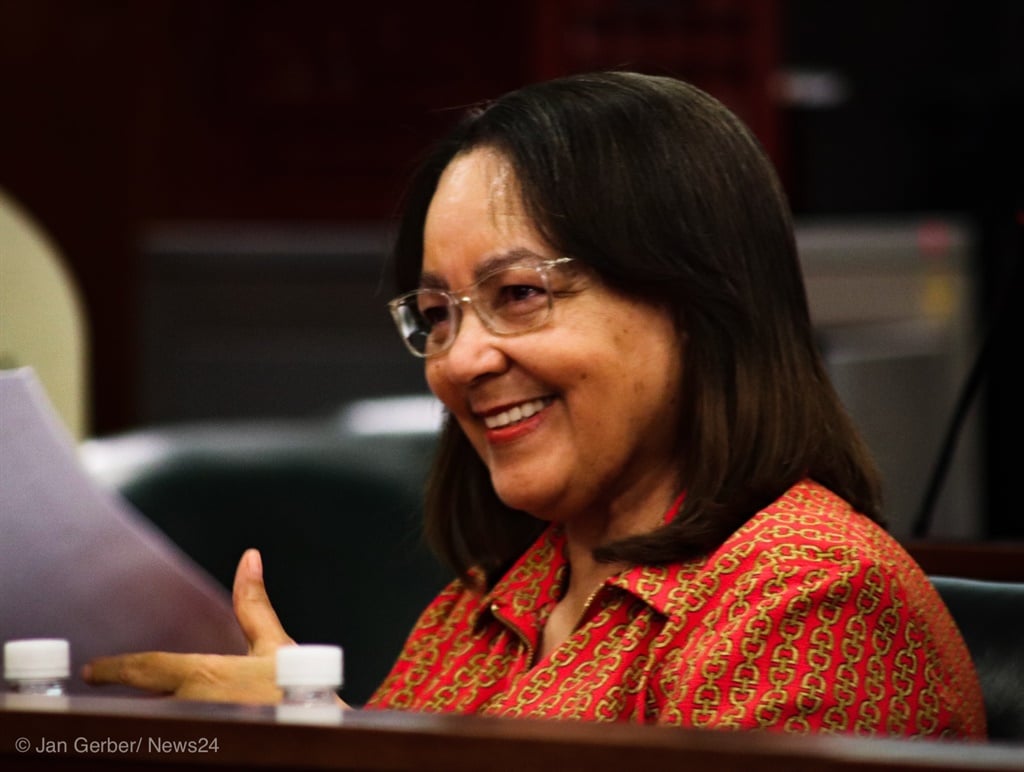


Minister of Public Works and Infrastructure Patricia de Lille (Jan Gerber/ News24)
- The private sector has committed R340 billion to fund some of the the 276 projects announced by President Cyril Ramaphosa during the Sustainable Infrastructure Development Symposium (SIDS) in June.
- Fifty of the SIDS projects as well as 12 Special Projects have received funding commitments.
- They are expected to begin construction within three months. Some have already started the tendering process.
- Public Works and Infrastructure Minister Patricia De Lille said systems will be put in place to deter corruption, including opening the bid evaluation process to the public.
Private sector funders have committed R340 billion to 62 of the infrastructure projects announced by President Cyril Ramphosa in June.
The President announced that 276 projects, needing about R2.3 in funding, had been identified, as South Africa is hoping an infrastructure-led recovery will lift it from its Covid-19 slump.
The first 50 of those the President said were “shovel ready” at the time – as well as 12 other “special projects” – have received funding commitments, the head of the Infrastructure Investment Office in the Presidency, Dr Kgosientsho Ramokgopa, said on Monday.
The projects were gazetted on Friday, and they are expected to create 290 000 potential jobs.
With the gazetting, these projects – which include water and sanitation (R106 billion), 15 transport sector projects (R48 billion), and an emergency power programme aimed at delivering up to 2 000 MW of new generation capacity from independent power producers – will be fast-tracked.
While it can take anything between 18 and 36 months for projects of this size to get the required approvals, like rezoning rights and other licenses, these will be able to get this done within 56 days, said Ramokgopa.
Ramokgopa said a number of the projects were “closer to construction” – that is, in the execution, operation or tendering phase.
“Essentially, these are projects that can be realised in the next three months,” Ramokgopa said, adding that all that was needed was instruments such as sovereign guarantees or an increase in borrowing limits. “All they require is the provision of bulk infrastructure,” Ramokgopa added.
Will urgency breed corruption?
With the pressure to get the projects off the ground faster than normal, and a construction sector that has been plagued by corruption, the minister for Public Works and Infrastructure, Patricia de Lille, said systems will be put in place to detect and prevent corrupt tenders.
One of those is having a single point of entry for all infrastructure projects across the country through Infrastructure South Africa (ISA), a new entity in the process of being established. All projects will also be reviewed by the Presidential Infrastructure Coordinating Commission Council, which is made up of premiers, mayors, and state-owned companies, to name a few.
De Lille said the listing of all projects under ISA meant that everyone will be aware of how many projects are currently being run in different spheres of government. At present, there is no record that brings all that information together, she said.
“Every single infrastructure project, at any sphere of government, or state-owned entity, will now be listed on a single-entry point. We will know at any point in time how much tenders are out there,” she said.
De Lille said under this umbrella, municipalities who want to procure the same service could be bundled together so that fewer tenders go out, creating fewer opportunities for corruption. The public will also be able to scrutinise companies who bid for tenders under the Strategic Integrated Projects.
“We will make public every single tender to whom it has been awarded. We will inform the communities, who are the contractors that are being appointed…We want to open up the tender process so that when bids are evaluated, that process must be open to the public,” she added.

